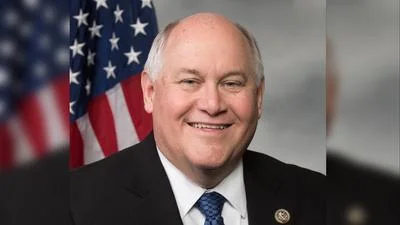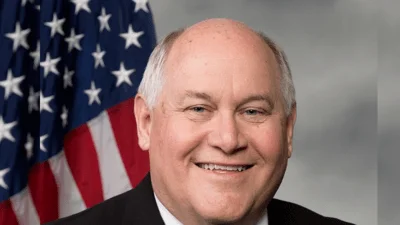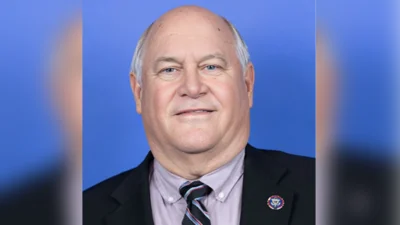The City of Manhattan’s Biosolids Management Program was recognized and honored as the Biosolids Program of the Year in Kansas for 2022 during the Kansas Water Environment Association’s (KWEA) and Kansas American Water Works Association’s (KsAWWA) 13th annual Joint Water and Wastewater Conference, which was held Aug. 30 through Sept. 1 in Topeka.
This is the second consecutive year the Biosolids Management Program has received this award. Overall, the program has received the Kansas Biosolids Management Award of the Year in five out of the last 12 years, in 2010, 2011, 2015, 2021, and 2022.
“In my opinion, the credit for this achievement goes to many people, especially Public Works Department administrators Rob Ott, Randy DeWitt, and Ben Kearns; Wastewater Treatment Plant staff Russell Still, Gerry Dickinson, Dan Tidwell, Jay Yaege, Eugene Morehead, and Tim Grecu; Environmental Compliance Section staff Tim Manges, Jaden Groene, and Ben Patterson; and our tenant farmers,” said Environmental Compliance Manager Abdu Durar.
“This award could not have been accomplished without the support of the elected City Commissioners and the City Manager’s Office for their tough decision to purchase the needed land resources for the City’s Biosolids Management Program despite the difficult budget challenges caused by the COVID-19 pandemic. In the last few years, many difficult and hard decisions were made regarding the City’s Biosolids Management Program — most importantly, the purchase of the leased and new farmland to meet current and future biosolids management needs.”
Among other reasons, the City’s Wastewater Treatment Plant (WWTP) was selected for the 2022 KWEA Biosolids Award in part because:
- The City’s Biosolids Management Program has achieved full compliance with all provisions of 40 C.F.R. Part 503 sludge regulations for the last 24 consecutive years, from 1998 through 2021.
- In 2021, the City generated approximately 3.1 dry tons of wastewater solids (biosolids) per day from the treatment process, or approximately 1,135 dry tons per year. The treatment process at the WWTP consists of aerobic digestion before biosolids are pumped to the City’s biosolids farm for land application. The farm includes two concrete-lined lagoons, each with a storage capacity of 6.8 million gallons.
- The Biosolids Management Program developed a Sludge Management Plan that was approved later by the Kansas Department of Health of Environment (KDHE). According to this management plan, biosolids are sampled quarterly to test for nutrients, metals, and pathogens. The soils of the biosolids farm are sampled annually for soil nutrients. Distributed throughout the farm are 33 test wells that are used to monitor Nitrate-N concentrations in the groundwater.
- The program has adopted a conservative approach for land application of biosolids. For example, during 2021, the average actual loading rate was 1.48 tons per acre, which represented 25.1 percent of the average calculated agronomic rate of 5.9 tons per acre.
- Through several innovative operational and management techniques, as well as the construction of a dissolved air flotation (DAF) thickening system to pre-thicken waste-activated sludge prior to aerobic digestion, there has a been a significant reduction in the volume of biosolids produced annually in Manhattan. In 2021, overall volume was reduced to just 13.2 million gallons, as compared with a peak volume of 31.1 million gallons produced in 1997.
- The City’s Biosolids Management Program has increased the amount of land available for biosolids application from 120 acres in 1995 to 600 acres in 2022.
Original source can be found here.




 Alerts Sign-up
Alerts Sign-up